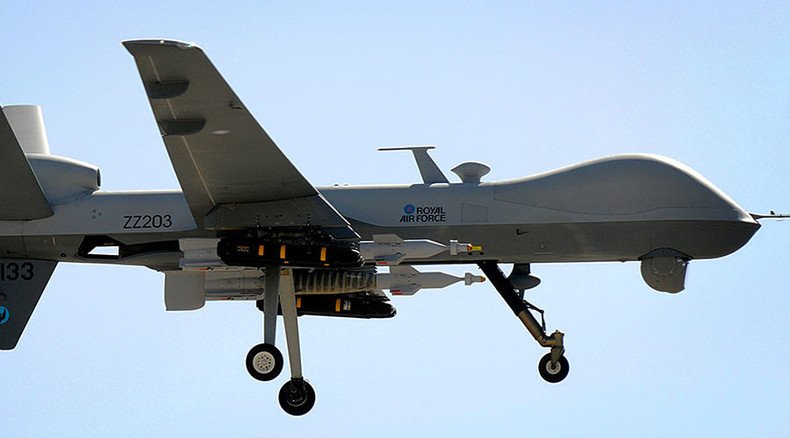Britain’s ‘kill list’: MPs question legality of UK drone strikes

MPs have questioned the legality of the government’s targeted killing of three British jihadists in Syria during the summer and asked whether ministers have drawn up a “kill list” for future attacks.
Parliament’s Joint Committee on Human Rights wrote to Attorney General Jeremy Wright QC and Foreign Secretary Philip Hammond to ask whether the killing of Reyaad Khan, Ruhul Amin and Junaid Hussain this summer by UK and US drones was a violation of international law.
MPs requested a “clear statement” explaining the government’s targeted killing policy and its legal framework.
Killer drones hunting British jihadists for months, govt admits http://t.co/QVZV4sKXh5pic.twitter.com/biaJFwxloS
— RT UK (@RTUKnews) September 9, 2015Committee chair Harriet Harman MP also wrote to the Ministry of Defence (MoD) asking to visit RAF Waddington, the base from which drone strikes are launched and controlled.
Prime Minister David Cameron authorized the targeted killing of three British jihadists by an RAF drone strike in August.
The Islamic State (formerly ISIS/ISIL) militants killed in the attack are believed to be Ruhul Amin, 26, from Aberdeen, and Reyaad Khan, 21, from Cardiff. No civilians were reported to have been killed in the airstrike.
Cameron justified the killings as an act of self-defense under article 51 of the United Nations charter. The PM said he consulted with the Attorney General about the legality of the attack before authorizing it.
Harman said there was a “strong public interest” in explaining the legality behind targeted killings.
“The Human Rights Committee has begun its inquiry into the government’s policy on the use of drones for targeted killing. In view of the strong public interest in clarifying the legal basis for the government’s policy, we want to hear from the principal lawyers involved in advising the government and the military on this issue.”
“We will visit the RAF base from which drone strikes are launched. We look forward to receiving the government’s response to the detailed questions we have asked in our letter.”
Critics of targeted killings argue the UK is imitating America’s policy of drone assassinations.
Reprieve legal director Kat Craig called for a full debate on the controversial strategy.
“The UK appears to be going down the US route of a counterproductive, secret drone war which does more harm than good,” she said.
“When even US generals are warning that the drone program causes more problems than it solves, it beggars belief that the British government is adopting the model in full. We need a real debate, and for that we need the government to come clean about this policy,” she added.
Washington’s targeted killing policy has come under scrutiny in recent weeks following explosive revelations published in The Intercept revealing that the US government lied about the number of civilian deaths caused by drone strikes in Afghanistan, Yemen and Somalia.
According to the leaks – dubbed the ‘Drone Papers’ – five or six non-targeted individuals have been killed on average in each assassination.
Prime Minister David Cameron told MPs in September that no civilians were killed in the RAF’s August drone strike on Syria.












